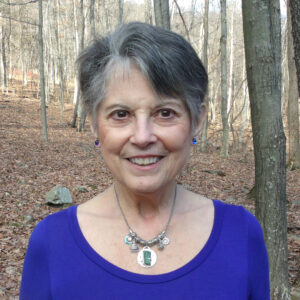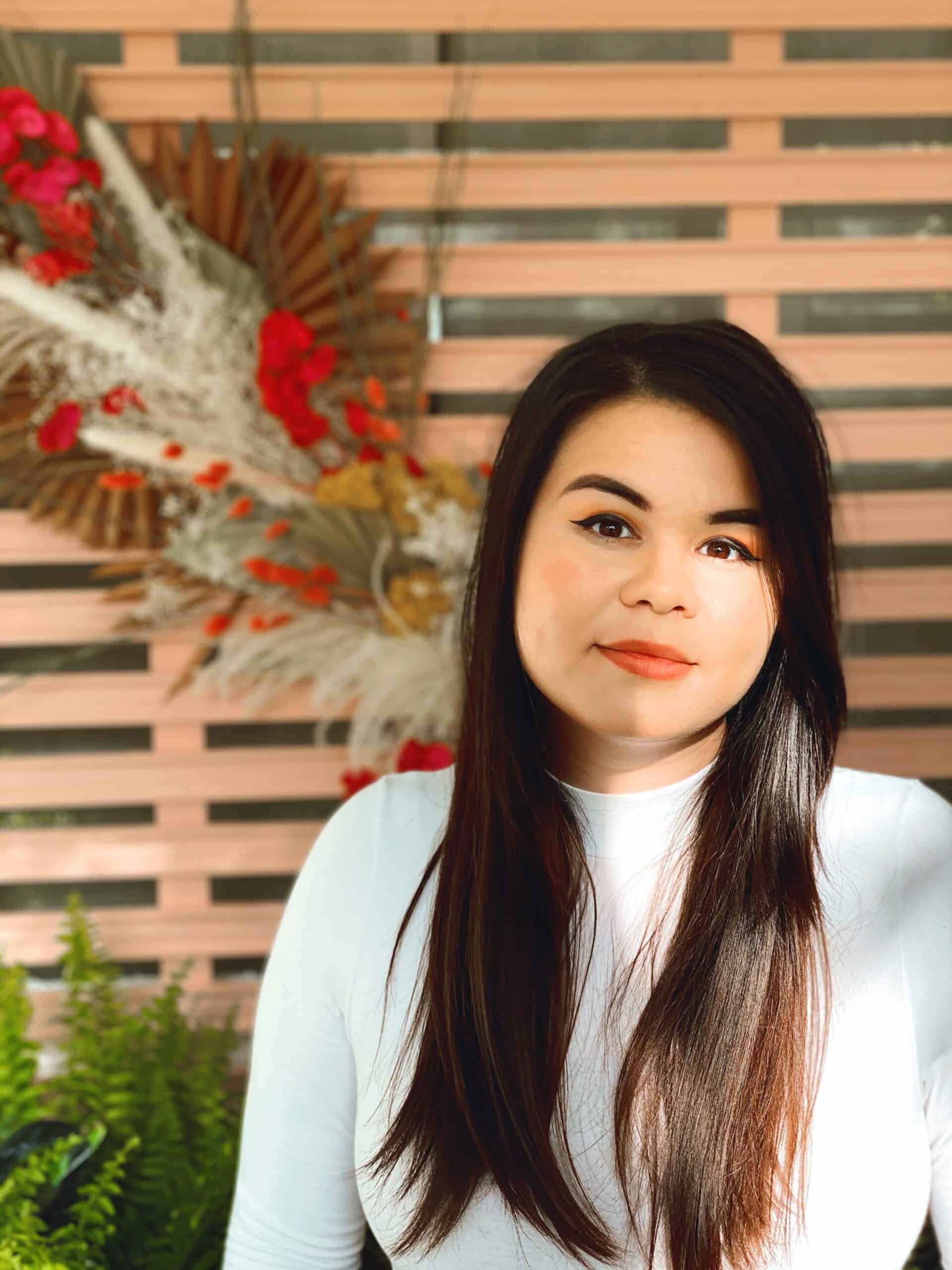Meet Dominique Brooks, a talented author who embarked on a remarkable journey from childhood aspirations of writing mystery novels to pursuing a career in medicine. Despite detours along the way, including a transition into medical writing and battling health challenges, Dominique found her way back to writing fiction, weaving her experiences into captivating stories. In this interview, she shares insights into her writing process, the inspiration behind her novels, and valuable advice for aspiring writers facing obstacles in their creative endeavors.

Can you share more about your journey from wanting to be a writer at eight years old to pursuing a career in medicine, and then ultimately returning to writing?
I have always been an enthusiastic reader. When I was a child, I read all of the stories in the Nancy Drew, Trixie Belden, and other children’s mystery novel series. I enjoyed them, but even as a kid, I recognized that there were very few characters that were like me. My cousins had noticed the same, and we embarked on a project together – to create our own murder mystery series with characters that looked like us. We were eight and nine years old.
We had a great start. We created a story “bible” and neighborhood maps and character portraits. We even folded up some dot-matrix computer paper in half to make our own “booklets” and started writing. Unfortunately, we were not plotters or outliners, so our stories flopped after a chapter or two. Eventually all our little booklets ended up in the attic never to be seen again. My cousins and I moved on to other interests and pursuits.
At age 11, my uncle graduated from medical school. My father had secured tickets for our family at the graduation festivities. While we wanted to celebrate my uncle’s achievement, my father had his own motives for taking me to the ceremony. He wanted to make sure that I knew as a young African American girl that there was nothing that I couldn’t do and that even becoming a physician was within my reach if I wanted it. As luck would have it, a female medical student – soon-to-be physician – was sharing the same table as my uncle during the graduation dinner. She wanted to be a neurosurgeon, and with all the hectic celebrations and general din, she took the time to talk to me about her goals and dreams. Why she wanted to be a doctor and a neurosurgeon. What she hoped to accomplish in her life. How happy it made her. She didn’t care that I was only eleven; she treated me like what I thought mattered.
I was in awe. I wanted to be like that – like her. I decided that I wanted to be a neurosurgeon too — at least until I understood how long it would take to become a neurosurgeon! I used our story in my medical school admission essays, and I wrote her a letter after medical school graduation which she responded to! The story seemed almost too perfect…
I ended up in ophthalmology, which I loved. But I didn’t love the surgery. Maybe I should say that I loved the idea of the surgery, but I was not a fan of performing it as it made me too nervous. I decided to get my MBA and to try to shift my focus on another area where I could use my MD degree. I began my career in medical writing, editing and education at WebMD (I was an early employee!) and when I left their employ, I wrote articles and other projects in medical education as a freelancer. I was back in the writing world again – it was a different area of the writing world, but I was closer. Once I started having health issues due to a hereditary kidney disorder, I made the transition back to writing fiction. Full circle.
What motivated you to start writing again, especially during a challenging time dealing with health issues?
One of the characteristics of kidney failure is exhaustion. Since my body was unable to rid itself of toxins and remain in balance, my activity levels decreased significantly. I had to plan my daily tasks carefully—usually managing one larger specific task like taking a child to an extracurricular activity or a trip to the store. Most of the time, I found myself sitting on or in bed with my laptop nearby. It was not a position I was used to being in.
In my youth, I would imagine just being able to sit and do nothing for indeterminant amounts of time and watching TV. It sounded fun to a kid. When actually faced with that option, it was not all it seemed. While there are many, many TV programs available and a vast number of articles and videos on the internet, I started to get bored. It was possible that I could be waiting for years to get a kidney transplant while sitting on a bed, and I wanted to have something to show for that time. So, I started to write.
How did your experience in medical education influence or inspire the themes or characters in your novel “Homecoming Chaos” and prequel novella “I Do CHAOS”?
After completing my ophthalmology residency, I went to business school to obtain my MBA. I had planned to leave my ophthalmology practice to work in Health Administration. That plan did not work out, but I was given an opportunity to work for WebMD as a medical editor. In 1999, WebMD was new and the Internet Bubble was big—I quickly moved to Atlanta to begin my career in medical education. During this process, I met some resistance from family members and friends who were confused by my leaving the practice of medicine after all the work I put in. The discussions that I had about this topic gave me an idea to create a character based on me who had left the practice of medicine as well. I didn’t want to write that story at that time, so I put the character aside. But when I did start writing, I used the basics of that character – Jamison – and made her the main female character. Leaving the practice of medicine was her back story now; in a future novel, I might revisit that particular subject. Jamison has a lot more drama in her life compared to me. This makes it interesting for the readers.
One thing that I learned from working in medical education is that there are other things that you can do with a medical degree. Medical schools didn’t mention many other alternative careers when I attended. It took some courage to step away for me; however, today, it is not quite as strange. My character Jamison is still finding her way, right now, she is not going back to medicine either. She is looking for other alternatives.
What were some of the biggest struggles or challenges you faced while writing your books, and how did you overcome them?
Many of the typical issues when writing such as writer’s block, deadlines, imposter syndrome, and burnout weren’t issues when I wrote Homecoming CHAOS. The fact that initially I didn’t have a plan to publish the book – or even a plan to finish it — alleviated many of the above concerns. The biggest non-physical struggle I had was when to stop writing. Homecoming CHAOS is a good-sized book. Some of what I originally wrote for Homecoming CHAOS is part of I Do CHAOS. Even more of it is part of the next novel that I am writing.
The situation is different now. I have a plan and goals for the stories that I am writing now. The process isn’t as carefree as it was before. Deadlines and writing speed seem to be my biggest concerns right now. Since I didn’t have a specific writing schedule or routine before, I am trying to create one now to become more efficient in my process. Making a specific time will be a very important portion of that process. In 2024, I plan to complete one new novel for the Model MD/CHAOS series, and two novellas.
What lessons have you learned about balancing your passion for writing with your career and personal life?
I am still learning those lessons right now!
Having a laptop makes it easy to carry it around to write whenever an idea comes to me. This is very bad for one’s personal life. I often have my computer with me when I take my daughter to her exercise case or when I am watching TV with my husband.
Since I self-published my novel, I also have to market the novels that I currently have out. That is another area that I have to learn to manage better as well. There are so many activities that can help get the word out about your book, and it is difficult to manage the amount of time and money that you spend doing that.
So, I have learned that it is important to create a plan or schedule for how much time you spend on writing and marketing and when that time will be. I will still try to multi-task if possible like when we travel to Dallas as a family in April, I want to visit a bookstore or two to meet the owner/managers and if possible, plan a book signing or other event. It is about making the best use of your time.
Can you share an inspirational moment or turning point in your writing journey that had a significant impact on you?
Finishing the book was the first turning point. During the entire writing saga when I was eight years old, I never completed a story. Granted my cousins and I were children when we first tried to write our children’s mystery series, but we didn’t understand plotting, so all of our stories consisted of several chapters. Typing “The End” was a milestone that I had never reached before. I realized that I could actually complete a book; It gave me confidence to continue.
The other inspirational moment was when someone who wasn’t related to me read my book and said that they enjoyed it. There is always some imposter syndrome involved when your husband or mother-in-law says that your book is good. But when someone that you don’t know says that they had a good time reading your book, it makes you feel like you can actually do this and have some success.
What advice would you give to aspiring writers who may be facing obstacles or doubts about pursuing their creative dreams?
One is to keep writing. You are a writer even if you haven’t published your work.
You will never know what might happen with your writing if you don’t try to publish it. It takes a lot of courage to do that, and each person has to decide if that is their path. Aspiring writers have options now for getting their writing out to the masses from putting their writing up on free sites, self-publishing, hybrid publishing, or traditional publishing. There are pros and cons for each option – again it requires research online and picking the brains of other authors to choose the best and safest option for your path.
Finally, the process of publishing your work can be expensive. Search for ways to make it a bit more affordable. If you have author friends, perhaps you can swap formatting or copyediting skills with them. Perhaps one of your friends can help format or you can create your own cover. There are free programs available that will help format; you can use free or inexpensive versions of editing software to help with editing and copyediting. You could find someone starting out who might offer you reduced rate editing services. You want to put out a professional product, but there are ways to make the publishing process less costly.
How do you use your social media platforms to connect with your readers and share your writing journey?
Social media is so important to marketing your work these days. I post on social media each day. I also have made other author friends, and we have collaborated on social media posts, giveaways, challenges, and more. I also use social media to share reviews or posts about my work, about me, or about events, signings, and other activities that I might participate in. You can also post in social media groups about your work to help amplify your reach.
Social media has changed the game for authors.
https://www.facebook.com/authordwbrooks/
https://www.instagram.com/authordwbrooks/






